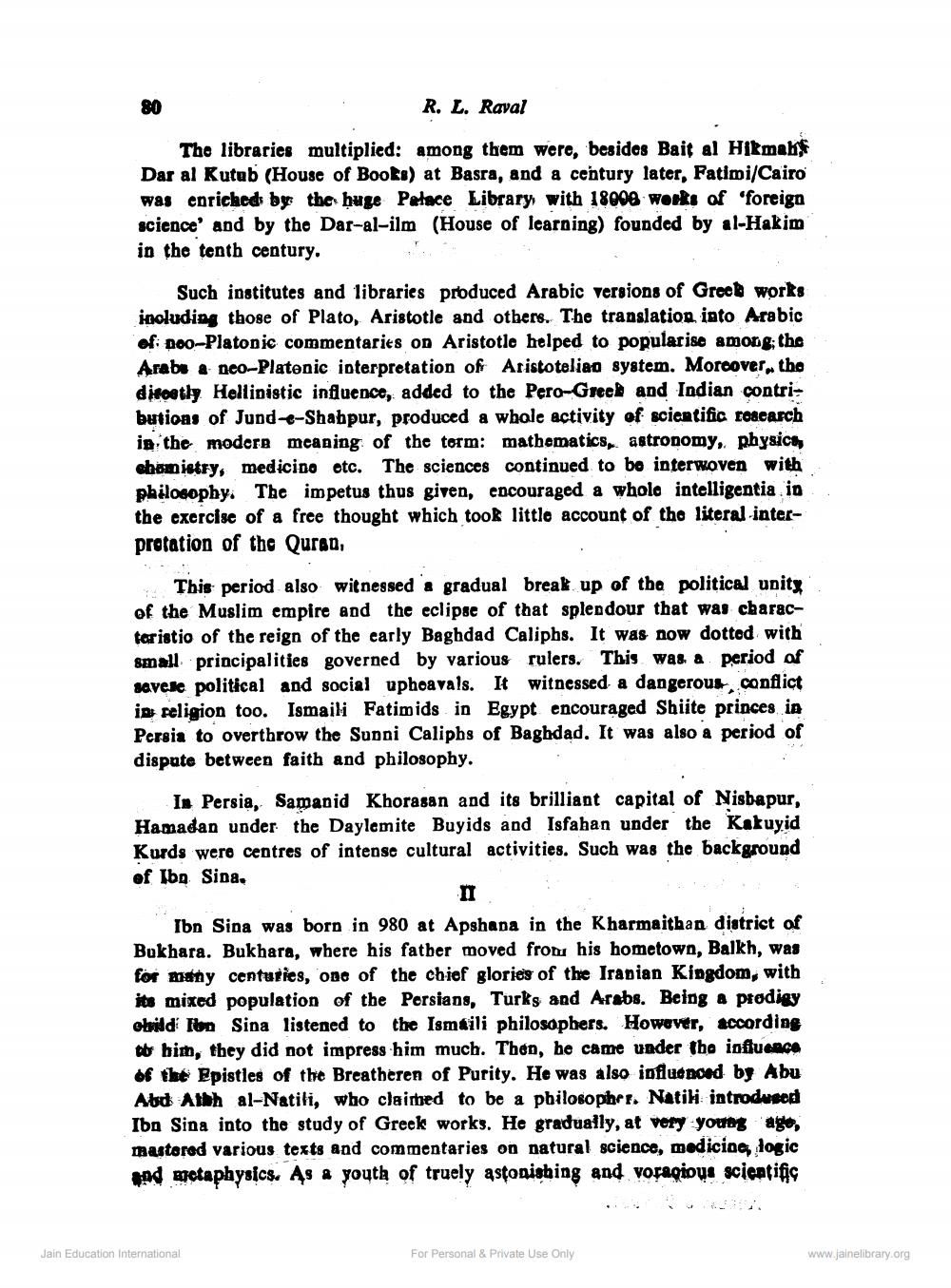________________
80
R. L. Raval
The libraries multiplied: among them were, besides Bait al Hikmah Dar al Kutub (House of Books) at Basra, and a century later, Fatimi/Cairo was enriched by the huge Palace Library with 18000 works of 'foreign science and by the Dar-al-ilm (House of learning) founded by al-Hakim in the tenth century.
Such institutes and libraries produced Arabic versions of Greek works including those of Plato, Aristotle and others. The translation into Arabic of Doo-Platonic commentaries on Aristotle helped to popularise among; the Arabu a neo-Platonic interpretation of Aristotelian system. Moreover, the diroethy Hellinistic influence, added to the Pero-Greek and Indian contributioas of Jund-e-Shahpur, produced a whole activity of scientific research in the modern meaning of the torm: mathematics, astronomy, physics, chemistry, medicino etc. The sciences continued to be interwoven with philosophy. The impetus thus given, encouraged a whole intelligentia in the exercise of a free thought which took little account of the literal interprotation of the Quran,
This period also witnessed a gradual break up of the political unity of the Muslim empire and the eclipse of that splendour that was characteristio of the reign of the carly Baghdad Caliphs. It was now dottod with small principalities governed by various rulers. This was a period of saveke political and social uphoavals. It witnessed a dangerous, conflict in religion too. Ismaili Fatimids in Egypt encouraged Shiite princes in Persia to overthrow the Supni Caliphs of Baghdad. It was also a period of dispute between faith and philosophy.
In Persia, Samanid Khorasan and its brilliant capital of Nisbapur, Hamadan under the Daylemite Buyids and Isfahan under the Katuyid Kurds were centres of intense cultural activities. Such was the background of Ibn Sina,
Ibn Sina was born in 980 at Apshapa in the Kharmaithan district of Bukhara. Bukhara, where his father moved from his hometown, Balkh, was for many centuries, one of the chief glories of the Iranian Kingdom, with its mixed population of the Persians, Turks and Arabs. Being a prodigy okviddi iton Sina listened to the Ismaili philosophers. However, according to him, they did not impress him much. Then, he came under the influence of the Epistles of the Breatheren of Purity. He was also influcnood by Abu Abd Aibh al-Natili, who claimed to be a philosophrr. Natili introduced Ibn Sina into the study of Greek works. He gradually, at very young age, mastored various texts and commentaries on natural science, medicina, logic and metaphysics. As a youth of truely astonishing and voragious scientific
Jain Education International
For Personal & Private Use Only
www.jainelibrary.org




